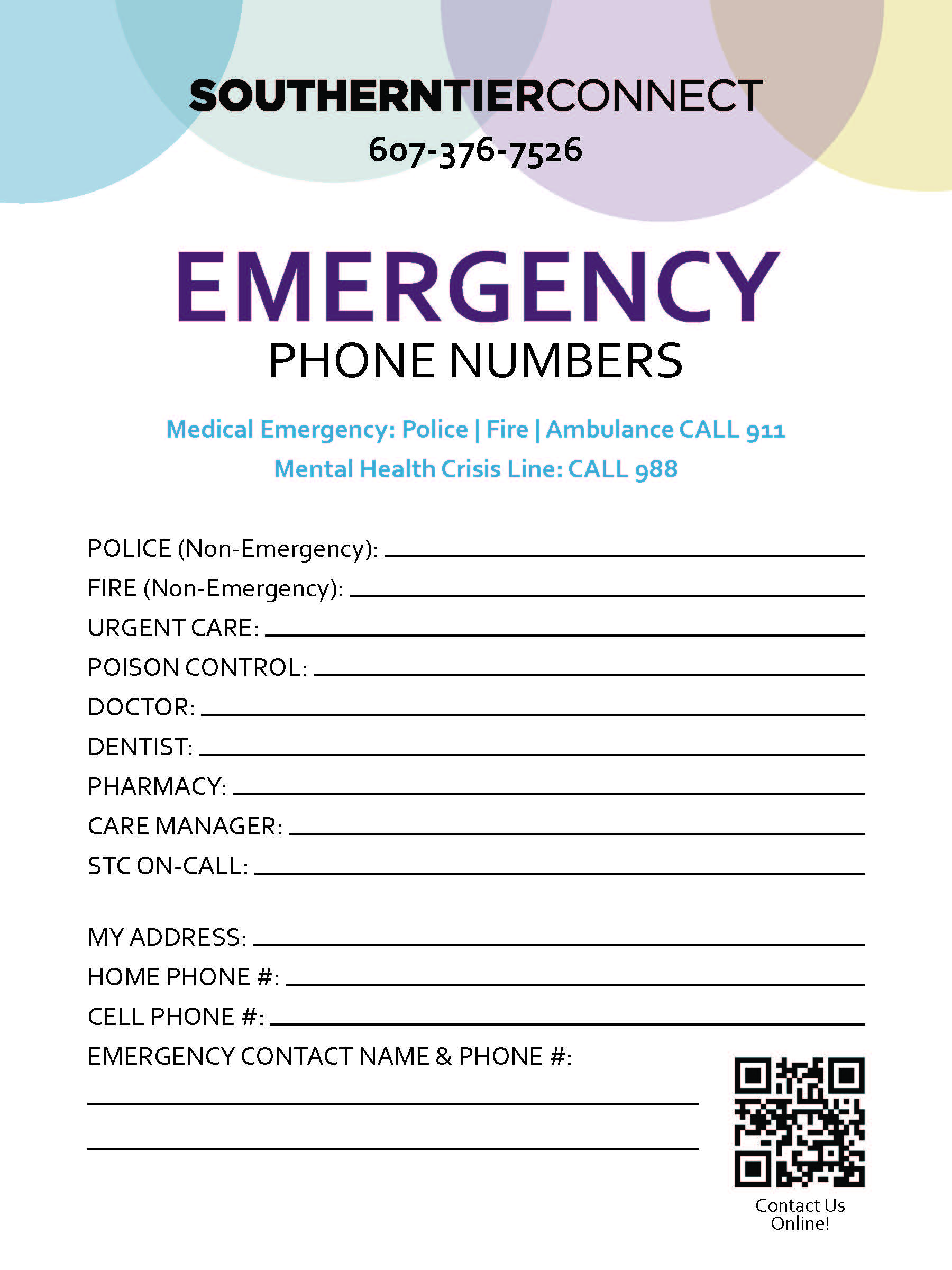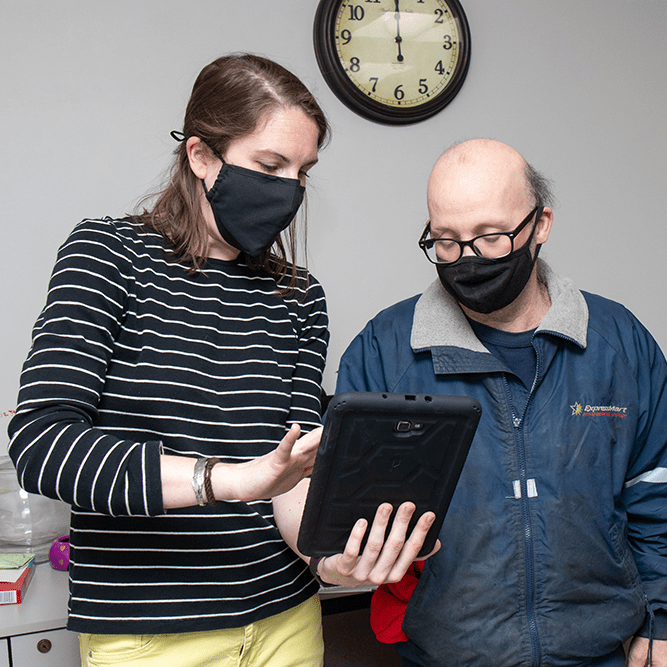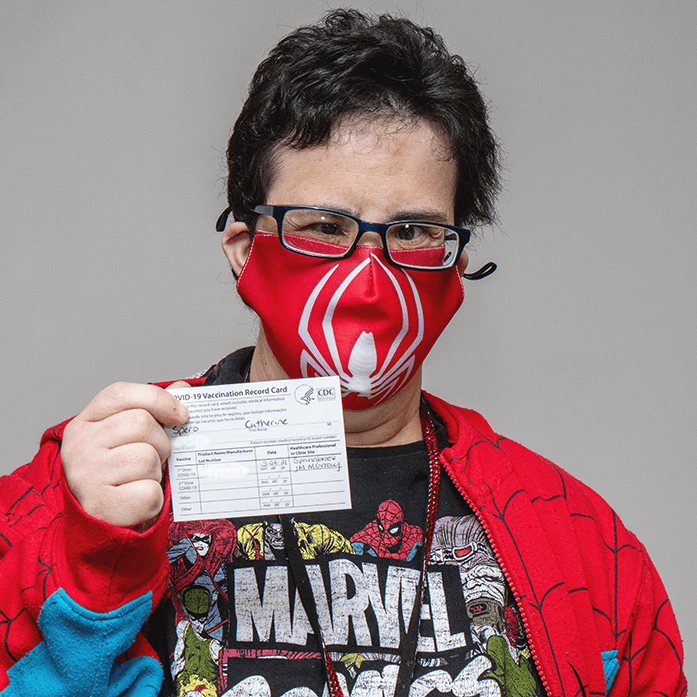Health Updates & Information
Southern Tier Connect bridges the gap between members and the healthcare services they need. We coordinate personalized care to ensure access to quality medical support and a healthier future.
AFTER-HOURS CALL NUMBER
If you need to get in touch with an STC Supervisor between the hours of 4 pm – 8 am on any day of the week, call (607) 376-7526 x101. For issues that arise Monday through Friday, 8 am – 4 pm, please contact your Care Manager. For health-related emergencies, please dial 911.
Resources
Below you will find helpful links and documents. If you need more information please contact your care manager.
Healthcare Brochures
Resources
- What should I bring to the doctor?
- Patient Healthcare Concerns
- Stanley Brown Safety Plan
- Emergency Room vs. Urgent Care: Where should I go?
- Getting a Vaccine: What to Know About Me (PDF)
This form can help nurses or physicians administer a successful vaccine administration either in a clinic or drive-thru environment.
Emergency Phone Numbers Magnet Form
We have created an emergency phone numbers magnet that you can place on your refrigerator or somewhere that can be easily accessed. If you would like a magnet, please contact your care manager.


Frequently Asked Questions
Why are annual well-care visits important?
Annual well- care visits are crucial for maintaining and promoting good health because they play a proactive role in identifying and addressing health issues before they become more serious.
-
-
- Early Detection of Health Issues: Well-care, or preventative care, appointments allow healthcare providers to detect health conditions, diseases, or risk factors at an early stage, often before symptoms appear. Early detection can lead to more effective treatment and better outcomes.
- Preventing Progression: Catching and addressing health problems early can prevent them from progressing into more severe or chronic conditions. This can ultimately reduce the need for more intensive treatments, hospitalizations, or surgeries.
- Lower Healthcare Costs: Preventive care is often more cost-effective than treating advanced diseases or chronic conditions. By addressing health issues early, individuals and healthcare systems can save money on medical expenses.
- Improved Quality of Life: Regular check-ups and screenings can help individuals maintain better physical and mental health, leading to an improved overall quality of life. Preventive care can help individuals stay active, enjoy better mobility, and experience fewer limitations in daily life.
- Risk Factor Identification: Well-care appointments can identify risk factors for certain diseases, such as high blood pressure, high cholesterol, or prediabetes. Once identified, individuals can take steps to manage and reduce these risk factors through lifestyle changes or medication.
- Vaccination and Immunization: Preventive care includes vaccinations and immunizations, which protect individuals and communities from serious infectious diseases. Immunizations are a cornerstone of public health and have saved countless lives.
- Cancer Screenings: Regular screenings, such as mammograms, Pap smears, and colonoscopies, can detect cancer in its early, more treatable stages. Early cancer detection significantly increases survival rates.
- Managing Chronic Conditions: For individuals with chronic conditions like diabetes or hypertension, preventive care helps manage these conditions and prevent complications, such as kidney disease or heart attacks.
- Lifestyle Modification: Well-care visits provide an opportunity for individuals to discuss lifestyle changes with their healthcare provider. This can lead to improved dietary habits, increased physical activity, smoking cessation, and other positive lifestyle modifications.
- Health Equity: Access to preventive care can help reduce health disparities by ensuring that individuals from diverse backgrounds receive equal opportunities for early detection and intervention.
-
Overall, annual well-care visits are an essential component of a proactive approach to healthcare. It empowers individuals to take charge of their health, reduce health risks, and enjoy a higher quality of life. Regular check-ups and screenings are investments in long-term well-being and can lead to healthier, happier lives.
What should you bring to a doctor's appointment?
When preparing for a doctor’s appointment, it’s important to be organized and bring the necessary items to ensure a productive and efficient visit. Click here for a list of items and information you should consider bringing to your doctor’s appointment: ‘What to Bring to a Doctor’s Appointment’ checklist
When is Telehealth an Appropriate Option?
Telehealth is available for a wide range of healthcare needs, but its suitability depends on several factors, including the type of healthcare service required, the patient’s condition, and the healthcare provider’s assessment. Here are some situations in which telehealth is often considered a suitable and convenient option:
-
-
- Routine Check-ups and Preventive Care: Some providers offer telehealth for routine health check-ups, such as annual physical exams, wellness visits, and vaccinations. However, in-person well-care visits are highly recommended whenever possible.
- Follow-up Appointments: Patients with chronic conditions may have follow-up appointments via telehealth to discuss treatment progress, medication management, and symptom monitoring.
- Medication Management: Telehealth is suitable for discussing medication adjustments, refilling prescriptions, and addressing any medication-related concerns.
- Non-Emergency Medical Concerns: For non-urgent medical issues like mild respiratory infections, allergies, skin conditions, and minor injuries, telehealth can provide evaluation and treatment recommendations.
- Mental Health Services: Telehealth is widely used for mental health counseling, therapy, and psychiatric consultations. It offers privacy and convenience for discussing emotional and psychological concerns.
- Diet and Nutrition Counseling: Dietitians and nutritionists can provide guidance on dietary plans, weight management, and nutrition-related issues through telehealth.
- Preoperative and Postoperative Consultations: Surgical consultations before a procedure and postoperative follow-up appointments can be conducted via telehealth when appropriate.
- Chronic Disease Management: Patients with chronic conditions like diabetes, hypertension, asthma, or heart disease can benefit from regular telehealth appointments to monitor and manage their conditions.
- Specialist Consultations: Telehealth can facilitate consultations with specialists in various fields, including cardiology, dermatology, neurology, and more, reducing the need for travel.
- Remote Monitoring: For patients with specific medical devices or wearable technology, healthcare providers may be able to remotely monitor vital signs and health data through telehealth platforms.
-
It’s important to note that while telehealth is suitable for many healthcare needs, there are situations where in-person care is necessary, such as emergencies, physical examinations that require hands-on assessment, surgical procedures, and certain diagnostic tests. Your healthcare provider will assess your condition and determine whether telehealth is an appropriate option or if an in-person visit is required.
How can your care manager support your overall health?
Your care manager plays an important role in supporting your overall health and well-being by helping to coordinate and manage various aspects of your healthcare.
-
-
- Comprehensive Care Coordination: A care manager serves as a central point of contact for all your healthcare needs. They coordinate care across multiple providers and settings, ensuring that everyone involved in your care is on the same page.
- Individualized Care Plans: Your care manager works with you and your healthcare team to create personalized care plans tailored to your specific health conditions and goals. These plans should address both short-term and long-term health needs.
- Medication Management: Care managers can help you manage your medications effectively. They ensure you understand your prescriptions, assist with prescription pick-up/ delivery, and can connect you with support for medication management if needed.
- Preventive Care: Care managers promote preventive care, such as vaccinations, screenings, and health assessments. They help you stay up to date with recommended preventive measures to detect and prevent health issues early.
- Chronic Disease Management: For individuals with chronic conditions, care managers develop strategies for managing the condition, including lifestyle modifications, self-care practices, and regular monitoring.
- Communication and Advocacy: Care managers facilitate communication between you, your healthcare providers, and your support network. They can advocate on your behalf, ensuring your concerns and preferences are heard and respected.
- Health Education: Care managers provide education about your health conditions, treatment options, and self-management strategies. They empower you with knowledge to make informed decisions about your health.
- Mental Health Support: Care managers address your mental health needs by connecting you with appropriate resources, such as therapists, counselors, or support groups. They monitor your emotional well-being and provide strategies for coping with mental health challenges.
- Home Health and Rehabilitation Services: If you require home health services or rehabilitation, care managers help arrange these services and ensure they align with your care plan.
- Transitions of Care: Care managers assist with transitions between healthcare settings, such as hospital to home or home to long-term care. They’re here to ensure a seamless transfer of information and continuity of care.
- Advocacy: When you encounter barriers to accessing care or face challenges within the healthcare system, care managers advocate for your needs and work to resolve issues.
- Coordination of Support Services: Beyond medical care, care managers can coordinate various support services, such as transportation, housing assistance, and nutritional support, to address social determinants of health.
- Quality of Life Enhancement: Care managers focus on improving your overall quality of life by addressing not only medical needs but also social, emotional, and functional aspects of well-being.
- Holistic Approach: Care managers take a holistic approach to your health, recognizing that physical, mental, and social factors all play a role in your overall well-being.
-
Your care manager’s primary goal is to optimize your health outcomes, enhance your quality of life, and ensure that you receive coordinated, patient-centered care. They work alongside your healthcare providers to support your health journey and provide the necessary guidance, resources, and advocacy to help you achieve your health goals.
If you have any questions or concerns about your health or healthcare services, please reach out to your care manager for support.
What should you expect from your Care Manager following an ER visit or hospitalization?
If you’ve given consent for your care manager to access your healthcare information via the RHIOs (Hixny and HealtheConnections), your care manager will be alerted of any emergency room (ER) visits or hospitalizations by the day after your visit/ admission. Following this alert, your care manager will reach out to see how you’re doing and offer to provide support as you recover. Support will vary for each individual and situation, but here are a few ways that you can expect your care manager to be involved:
-
-
- Check-In: Your care manager will ask questions to better understand the reason for your ER visit or hospitalization, how you’re feeling since being discharged, and any immediate needs you may have.
- Communication: Your care manager can serve as a central point of contact for communication between you, your healthcare providers, and your support network if needed. They will keep you informed about your care plan and progress.
- Medication Management: If you were prescribed new medications during your hospitalization or ER visit, your care manager will ensure that you’re able to pick up your prescriptions or have them delivered and that you understand when and how to take your new medications.
- Follow-Up Appointments: Your care manager can help to schedule and coordinate any necessary follow-up appointments with specialists, primary care physicians, or therapists to ensure you receive appropriate post-hospital care.
- Home Health Services: If home health services, such as nursing care or physical therapy, are needed, your care manager can help arrange these services.
- Education and Support: Your care manager can provide education about your medical condition, treatment options, and self-care strategies. If they are unable to answer your questions, they can connect you with professionals who are better able to address your questions and concerns.
- Advocacy: If you encounter barriers to accessing necessary care or services, your care manager can help you advocate for yourself or may be able to advocate on your behalf to resolve issues and ensure you receive appropriate care.
- Psychosocial Support: Your care manager should address your emotional and psychosocial needs during the recovery process, connecting you with counseling or support groups as necessary.
- Assistance with Transition: If your ER visit or hospitalization resulted in a significant change in your living situation or daily activities, the care manager will assist with the transition, whether that means arranging for home modifications, equipment, or in-home care.
- Emergency Response Planning: Your care manager will help you develop a plan for handling emergencies and provide guidance on when to seek medical attention, as necessary.
- Regular Check-Ins: Expect regular check-ins from your care manager so that they can ensure that you are recovering appropriately and adhering to your care plan.
-
Your care manager’s goal is to facilitate a smooth transition from the ER or hospital and support your long-term well-being. They should work collaboratively with you and your healthcare team to ensure you receive appropriate and coordinated care. Don’t hesitate to communicate your needs and preferences with your care manager, as they are there to advocate for your best interests and ensure your recovery is as successful as possible.
List of Urgent Care and Walk-In Clinics in your County
Lourdes Walk- In - Robinson St
Lourdes Walk- In - Chenango Bridge
UHS Walk- In - Vestal
Lourdes Walk- In - Vestal
UHS Walk- In - Endicott
Lourdes Walk- In - Johnson City
Lourdes Walk- In - Endicott
Endwell Family Physicians Walk- In
WellNow Urgent Care - Elmira
Arnot Health Walk- In Clinic - Eastside
Arnot Health Walk- In Clinic - Horseheads
Guthrie Walk- In Care - Big Flats
UHS Walk- In - Norwich
Cayuga Health Urgent Care - Cortland
Guthrie Walk- In - Cortland
WellNow Urgent Care - Gloversville
St. Mary's Urgent Care - Gloversville
WellNow Urgent Care - Herkimer
Bassett Convenient Care - Herkimer
Quick Care - Oneida
WellNow Urgent Care - Oneida
Community Memorial Urgent Care - Hamilton
St. Mary's Urgent Care - Amsterdam
St. Mary's Urgent Care - St. Johnsville
WellNow Urgent Care - Amsterdam
WellNow Urgent Care - Utica
WellNow Urgent Care - New Hartford
WellNow Urgent Care - Rome
Urgent Care at Slocum Dickson - New Hartford
Quick Care - Camden
Fox Now Walk- In Healthcare - Oneonta
WellNow Urgent Care - Oneonta
Bassett Convenient Care - Oneonta
WellNow Urgent Care - Cobleskill
Lourdes walk-in - Owego
WellNow Urgent Care - Ithaca
Cayuga Immediate Care - Ithaca
Guthrie Walk- In Care - Ithaca
UHS Walk- In - Walton
Broome:
Guthrie Walk-In: Chenango Bridge
UHS Walk-In: Vestal
Guthrie Walk-In: Vestal
UHS Walk-In: Endicott
Guthrie Walk-In: Johnson City
Family Physicians Walk-In: Endwell
Chemung:
WellNow Urgent Care: Elmira
Arnot Health Walk-In Clinic: Eastside
Arnot Health Walk-In Clinic: Horseheads
Guthrie Walk-In Care: Big Flats
Chenango:
UHS Walk-In: Norwich
Cortland:
Cayuga Health Urgent Care: Cortland
Guthrie Walk-In: Cortland
Delaware:
UHS Walk-in: Walton
Fulton:
WellNow Urgent Care: Gloversville
St. Mary’s Urgent Care: Gloversville
Herkimer:
WellNow Urgent Care: Herkimer
Bassett Convenient Care: Herkimer
Madison:
Quick Care: Oneida
WellNow Urgent Care: Oneida
Community Memorial Urgent Care: Hamilton
Montgomery:
St. Mary’s Urgent Care: Amsterdam
St. Mary’s Urgent Care: St. Johnsville
WellNow Urgent Care: Amsterdam
Oneida:
WellNow Urgent Care: Utica
WellNow Urgent Care: New Hartford
WellNow Urgent Care: Rome
Urgent Care at Slocum Dickson: New Hartford
Quick Care: Camden
COVID-19 Information
If you are interested in receiving a COVID-19 vaccine, whether it be your first dose or a booster shot, please contact your care manager for more information. If you cannot reach your care manager, please contact: our main info line at 607-376-7526 ext. 100 or email info@southerntierconnect.org
Below you will find helpful links and documents to get you started.
COVID-19 Informational Videos
Please visit our Health-Related Webinar section on our Webinars landing page, linked below.


